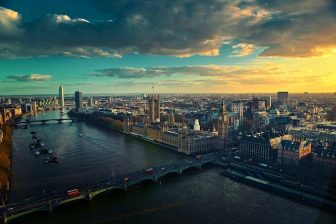 Owners of around 50,000 UK homes held by foreign companies remain hidden from public view, despite the government’s pledge to crack down on “corrupt elites” from overseas, including “Russian oligarchs and kleptocrats”, using property in this country to launder illegal wealth.
Owners of around 50,000 UK homes held by foreign companies remain hidden from public view, despite the government’s pledge to crack down on “corrupt elites” from overseas, including “Russian oligarchs and kleptocrats”, using property in this country to launder illegal wealth.
New transparency legislation was introduced last year in response to Russia’s invasion of Ukraine, designed to reveal who ultimately owns UK property.
But analysis by BBC News and Transparency International has found that despite the Register of Overseas Entities, launched in August 2022, almost half of firms required to declare who is behind them failed to do so.
The BBC and Transparency International matched thousands of filings from the new register with Land Registry records. This analysis suggests that some 18,000 offshore companies – which between them hold more than 50,000 properties in England and Wales – either ignored the law altogether or filed information in such a way that it remains impossible for the public to find out who the individuals are who ultimately own and benefit from them.
“While the register is starting to serve its intended purpose, our analysis reveals there are far too many companies that could be trying to skirt the rules, not knowing they exist, or ignoring them altogether,” said Duncan Hames, Director of Policy at Transparency International UK.
Similar analysis by Reuters found that just four Russian nationals under British government sanctions appeared on the register. They were: Vladimir Potanin, one of Russia’s wealthiest businessmen; Russia’s former first deputy prime minister Igor Shuvalov and his wife; and Alexander Frolov, the former chief executive officer of Evraz, a Russian steel and mining company.
Absent from the register were some sanctioned Russians who have been linked to UK properties, including Roman Abramovich.
London’s luxury property market has resembled “a giant washing machine” for overseas laundered money in recent decades, said Jonathan Benton, former head of the UK’s National Crime Agency’s international corruption unit.
Benton said the new register is an important step towards transparency but that the legislation had “large and quite obvious holes” that leave corrupt, wealthy individuals able to find ways to avoid revealing what they own.
Among key exemptions: Beneficial owners are only required to register if they own more than 25% of the property-owning foreign company. And, in most cases, if foreign companies purchased the property before 1999 or hold UK property in a trust they do not need to publicly disclose the beneficial owners. Where the beneficial owner is a trustee, the property holder must provide information to the government about the trust and people connected to it, though the information isn’t made public.
In a further limit to disclosure, those registering are not required to include the address of the property owned.
Successive British governments have received warnings about potential flaws since plans to introduce the register were announced seven years ago.
Margaret Hodge, a lawmaker for the Labour Party who has focused on anti-corruption, said Reuters’ findings show the government has failed to stop President Putin’s supporters “concealing their assets” in Britain.
Hodge said the transparency legislation is currently not “fit for purpose”.


Comments are closed.